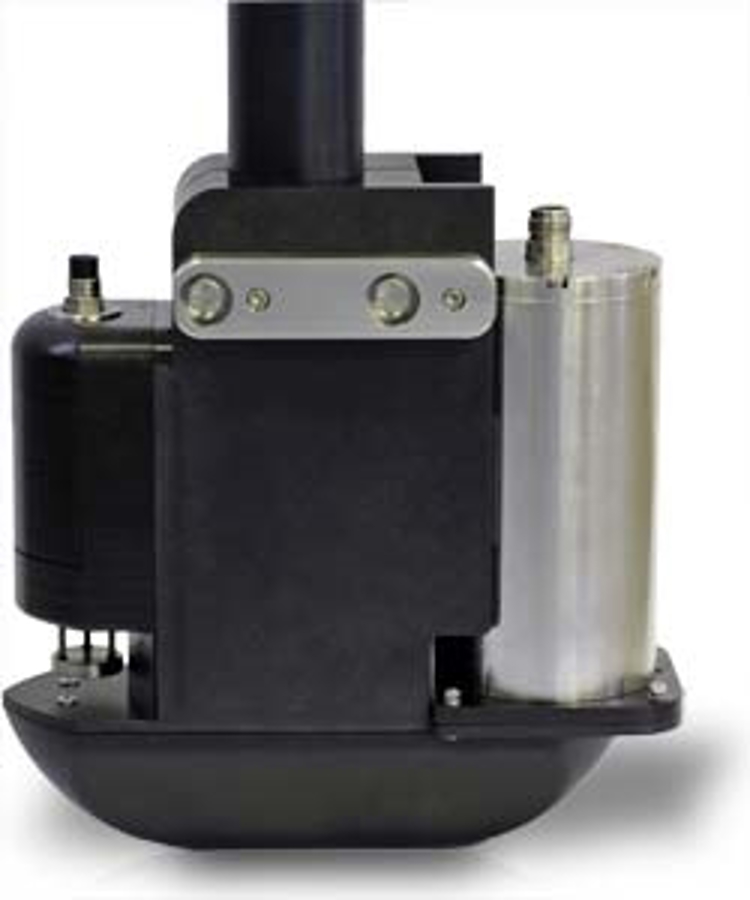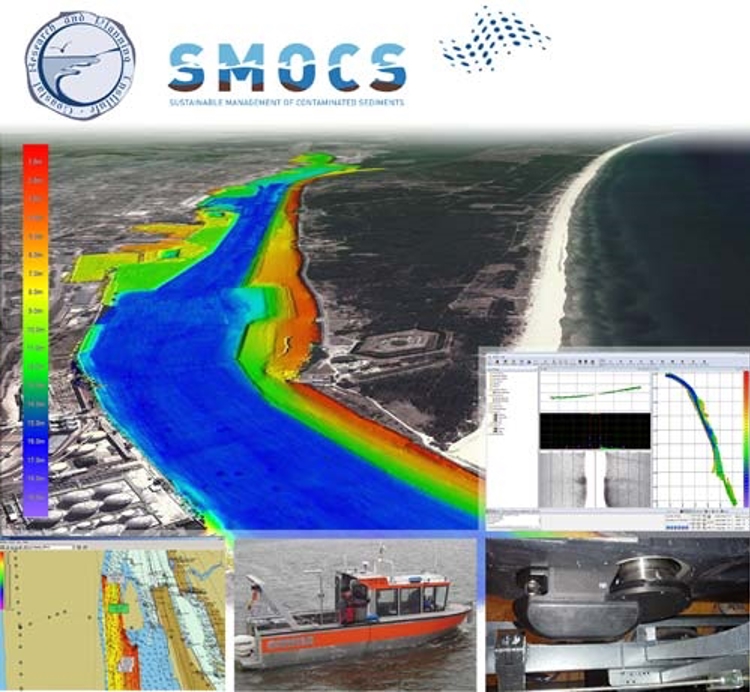
This EU funded project was carried out during the implementation of the Sustainable Management of Contaminated Sediments (SMOCS) Project, developed under the framework of the Baltic Sea Region Programme 2007-2013 (http://eu.baltic.net/).
The work focuses on the mapping of contaminated sediments in the modern port development area. Full-scale, shallow water multibeam, side-scan sea floor imagery and seismic mapping were carried out by CORPI's staff in order to gain a full understanding of the morphology and distribution of the seabed sediments. This project has special significance as it provides new information for on-going dredging work and for future harbour developments which, relying on these new data, can now be developed right up to the maximum possible depths. For sustainable future development this highly dynamic environment needs to be fully understood, with proper recognition of the seabed morphology and sedimentary patterns of superficial deposits essential.

CORPI's main scientific activity is interdisciplinary research for sustainable coastal zone management, which includes analysis and forecasting of the changes in the marine environment as well as development of the scientific knowledge necessary for the sustainable management of coastal resources. For this project the Institute used the modern multipurpose motor boat EMMA from Emma Technologies GmbH, specifically developed for shallow water sea floor mapping. The boat has an ad-hoc moon pool designed to accommodate the wide swath bathymetry system. The Kongsberg GeoAcoustics GeoSwath Plus COMPACT multibeam mapping system was chosen for this survey as it delivers high resolution bathymetry with coverage of up to 12 times the water depth, along with co-registered geo-referenced side-scan data which can be used for sea floor imagery and classification in shallow water environments.